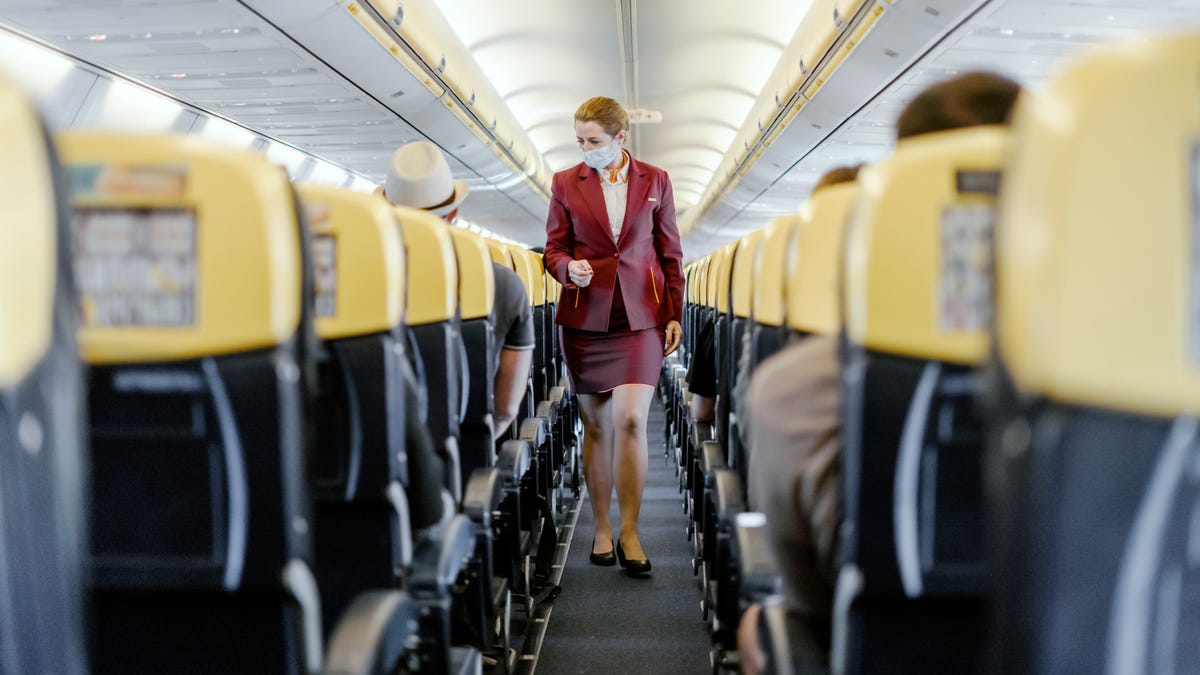Check an Airline's Coronavirus Policies Before Booking - 4 minutes read
 Photo : Sopotnicki ( Shutterstock )
Photo : Sopotnicki ( Shutterstock )Navigating air travel during the COVID-19 pandemic has been tricky. First and foremost, you want to make sure that you’re as safe as possible. On top of that, there are fewer routes and flights available, travel restrictions, and other guidelines that seem to be constantly changing.
Advertisement
Unlike after 9/11—when there were sweeping changes made to air travel—there are no federal mandates for mask-wearing or keeping middle seats open on flights, nor any industry-wide standards. That means that it’s up to each airline individually to set their own rules. And, as it turns out, not all airlines are created equal, according to Brian Kelly, better known as The Points Guy, the CEO and founder of the travel website of the same name. Here’s what he wants you to know before booking your next flight.
Advertisement
Don’t make assumptions
The wide range of changes to air travel over the past few months—including updated cancellation policies and mask requirements—have been in the news a lot. But just because you see one airline doing something doesn’t mean that it’s an industry standard.
G/O Media may get a commission 10mg CBD Gummies (22-Count) $22 Use the promo code ESINV25
For example, though Delta (which for the time being is operating at 75% capacity), JetBlue, Southwest, and Alaska are all currently blocking middle seats on their flights (at least through the holidays), Kelly says that consumers shouldn’t expect that policy across the board.
“We’ve seen about half of U S carriers take steps to social distance on planes, meaning seat blocking or capacity controls,” he tells Lifehacker. “So the issue there is that, when you fly those airlines, people expect one experience, but when you fly American or United, you’re getting a fully jam-packed plane most of the time. I think for consumers, the biggest thing is that no two airlines are the same.”
Advertisement
In other words, if you book a flight on United (or another airline that doesn’t have the open middle seat policy), there’s a good chance that you’ll find someone in the middle seat. We know flying itself can be stressful—let alone during a pandemic—so the last thing airline passengers and crew need is to deal with someone having an outburst because they thought the middle seat would be open when it’s not. Again, to avoid a situation like this, Kelly recommends checking an airline’s capacity and social distancing guidelines before booking a ticket.
What's a 'COVID Passport'? It’s going to be a while before air travel returns to anything resembling what it was before the… Read more
Advertisement
Understand that fares are only one part of the ticket cost
While there may be exceptionally low fares right now, Kelly reminds us that fares are only one component of your ticket. “Even though change fees are gone, baggage fees and other fees are still around,” he explains. So instead of simply looking at the fare itself when comparison shopping, consider the total cost of the ticket when you factor in baggage, priority boarding, or any other extras.
Advertisement
If two fares are the same, Kelly says that it’s important to look at what you get for your money. For example, if the fare on Southwest is the same (or even a little more) than American, keep in mind that you’ll get two free bags when you fly on Southwest, that you would otherwise have to pay for on American.
And this applies to middle seat policies, too. “It’s up to the consumer to understand, but you may want to pay a little bit more on Delta to know that you’re going to have an empty middle seat,” Kelly explains. “Do your diligence on what the flying experience is going to be like on different airlines. Don’t assume every airline is blocking middle seats. It’s just not true.”
Source: Lifehacker.com
Powered by NewsAPI.org